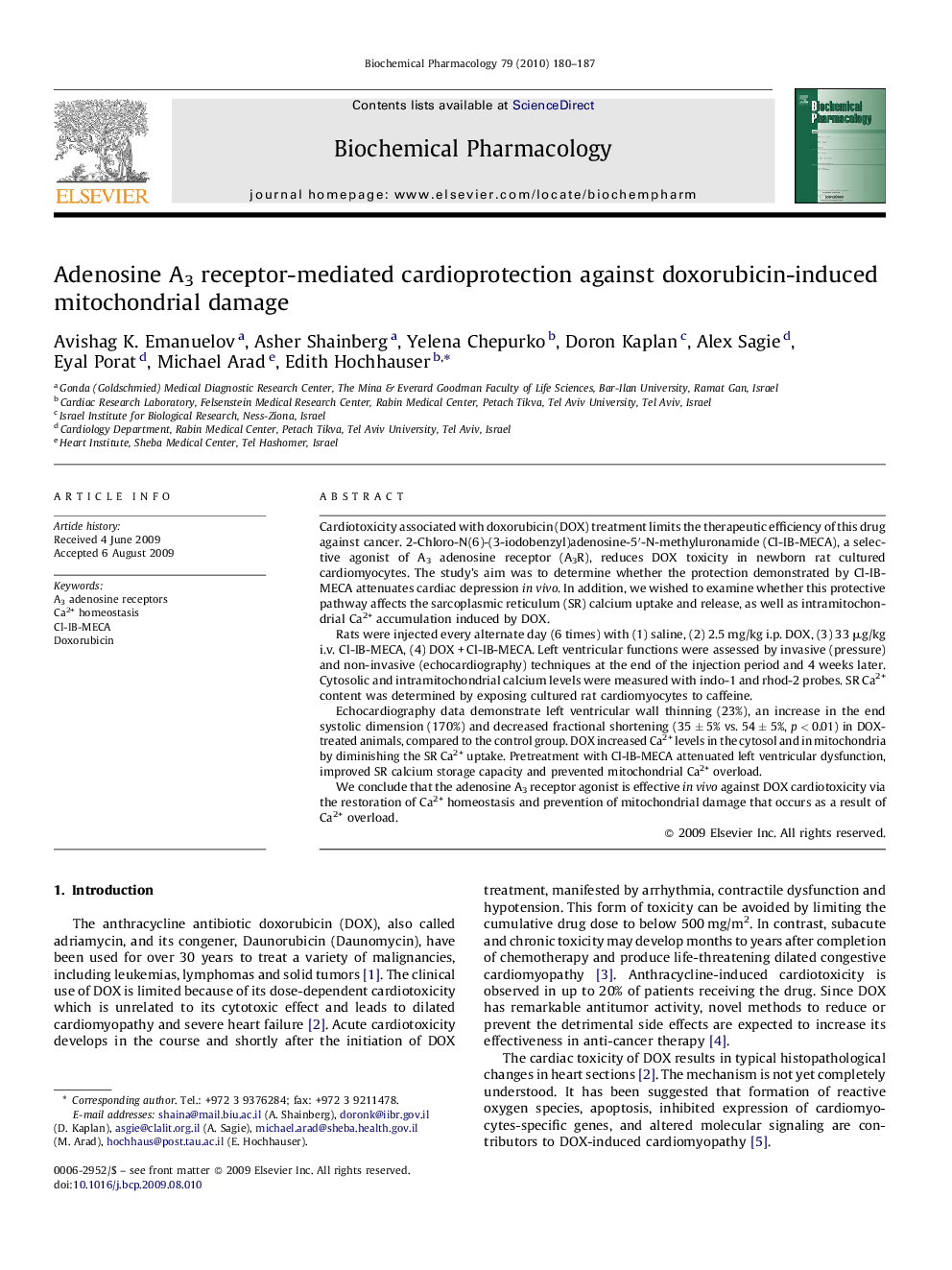| کد مقاله | کد نشریه | سال انتشار | مقاله انگلیسی | نسخه تمام متن |
|---|---|---|---|---|
| 2513815 | 1118436 | 2010 | 8 صفحه PDF | دانلود رایگان |

Cardiotoxicity associated with doxorubicin (DOX) treatment limits the therapeutic efficiency of this drug against cancer. 2-Chloro-N(6)-(3-iodobenzyl)adenosine-5′-N-methyluronamide (Cl-IB-MECA), a selective agonist of A3 adenosine receptor (A3R), reduces DOX toxicity in newborn rat cultured cardiomyocytes. The study's aim was to determine whether the protection demonstrated by Cl-IB-MECA attenuates cardiac depression in vivo. In addition, we wished to examine whether this protective pathway affects the sarcoplasmic reticulum (SR) calcium uptake and release, as well as intramitochondrial Ca2+ accumulation induced by DOX.Rats were injected every alternate day (6 times) with (1) saline, (2) 2.5 mg/kg i.p. DOX, (3) 33 μg/kg i.v. Cl-IB-MECA, (4) DOX + Cl-IB-MECA. Left ventricular functions were assessed by invasive (pressure) and non-invasive (echocardiography) techniques at the end of the injection period and 4 weeks later. Cytosolic and intramitochondrial calcium levels were measured with indo-1 and rhod-2 probes. SR Ca2+ content was determined by exposing cultured rat cardiomyocytes to caffeine.Echocardiography data demonstrate left ventricular wall thinning (23%), an increase in the end systolic dimension (170%) and decreased fractional shortening (35 ± 5% vs. 54 ± 5%, p < 0.01) in DOX-treated animals, compared to the control group. DOX increased Ca2+ levels in the cytosol and in mitochondria by diminishing the SR Ca2+ uptake. Pretreatment with Cl-IB-MECA attenuated left ventricular dysfunction, improved SR calcium storage capacity and prevented mitochondrial Ca2+ overload.We conclude that the adenosine A3 receptor agonist is effective in vivo against DOX cardiotoxicity via the restoration of Ca2+ homeostasis and prevention of mitochondrial damage that occurs as a result of Ca2+ overload.
Doxorubicin (DOX) causes cardiotoxicity which is accompanied by [Ca2+]i release from the sarcoplasmic reticulum (SR). By activating SERCA2a, the A3R agonist, Cl-IB-MECA, leads to the restoration of Ca2+ homeostasis, thus attenuating DOX cardiotoxicity.Figure optionsDownload as PowerPoint slide
Journal: Biochemical Pharmacology - Volume 79, Issue 2, 15 January 2010, Pages 180–187